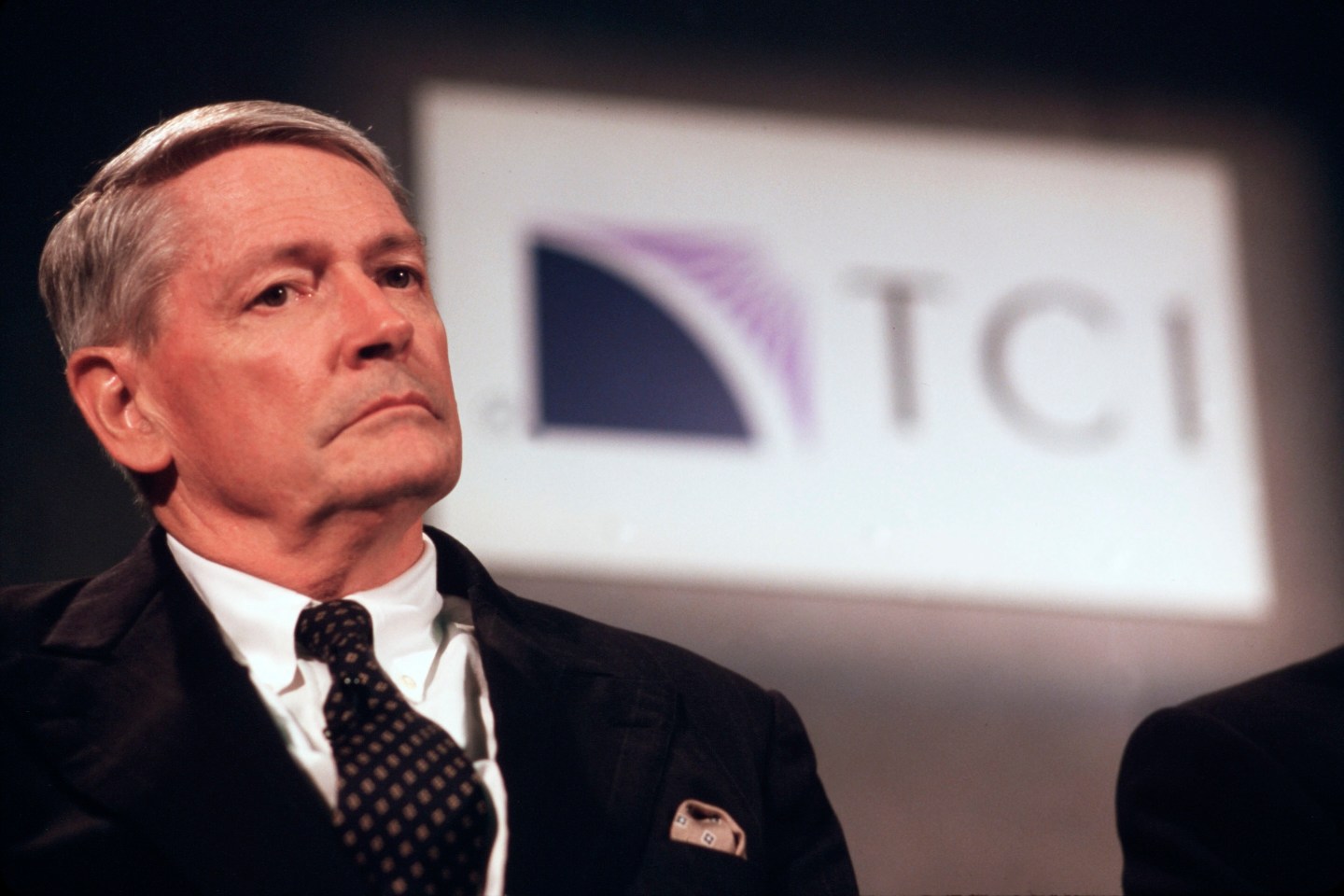This essay originally published in the Sunday, July 14, 2024 edition of the Fortune Archives newsletter.
“Not many businessmen would even consider toying with Bill Gates, much less bragging about it.” That was the observation of Fortune writer Edward Desmond about the cable executive and corporate legend John Malone in a 1998 cover story.
Malone’s cable company Tele-Communications Inc. (TCI) was locked in a contentious negotiation at the time with Microsoft over whether the tech giant’s operating systems would power TCI’s cable boxes. Malone was dead-set on not allowing Microsoft to have the near monopoly on cable operating systems it did in the PC market, though he was open to (and later did make) a limited deal with Microsoft.
Still, he seemed to relish making Gates sweat—leaving him “pretty agitated,” as Malone told Desmond with “a lean, wolfish grin.”
But despite his ribbing of the preternaturally earnest Gates, Malone was well aware he needed Microsoft, and Silicon Valley more broadly. Malone envisioned a future in which entertainment and the internet would merge into a single device that offered everything from television shows, to email, to online shopping—what today we’d call a smart device. And Gates also needed Malone, whose network of cables connected to homes across America could solve the bandwidth problems that made the internet too slow for everyday consumers.
“The panacea the techies now seek is a powerful set-top box—a computer, really—on top of every TV, delivering not just video but rocket-powered Internet access for everything from financial services to videophone conversations,” Desmond wrote.
In short, Malone saw that everything was about to change, and squeezed Gates for all he could. The Malone-Gates tussle would presage tech’s encroachment onto entertainment, a decades-long changing of the guard that’s still underway: Just last week, the heir of an old-school media baron sold Paramount Global to a scion of tech wealth, when Shari Redstone reached a deal with David Ellison’s Skydance Media.
Malone’s presence looms large over the current crop of media industry executives. Gerry Cardinale, the founder of RedBird Capital and one of the main backers of the Paramount deal, called Malone’s prescience an inspiration when I interviewed him recently. And David Zaslav, the CEO of Warner Bros. Discovery (of which Malone is a major shareholder and board member) considers him a mentor and proudly displays a photo of the two in his L.A. office.
This is the web version of the Fortune Archives newsletter, which unearths the Fortune stories that have had a lasting impact on business and culture between 1930 and today. Subscribe to receive it for free in your inbox every Sunday morning.













